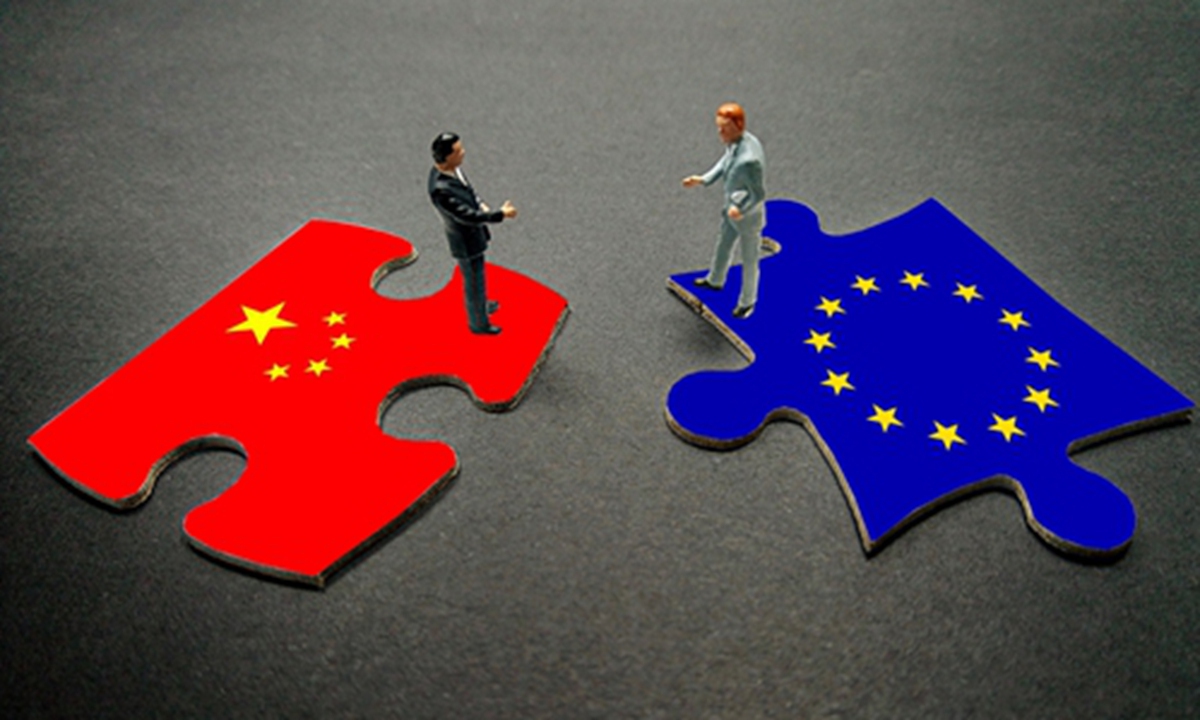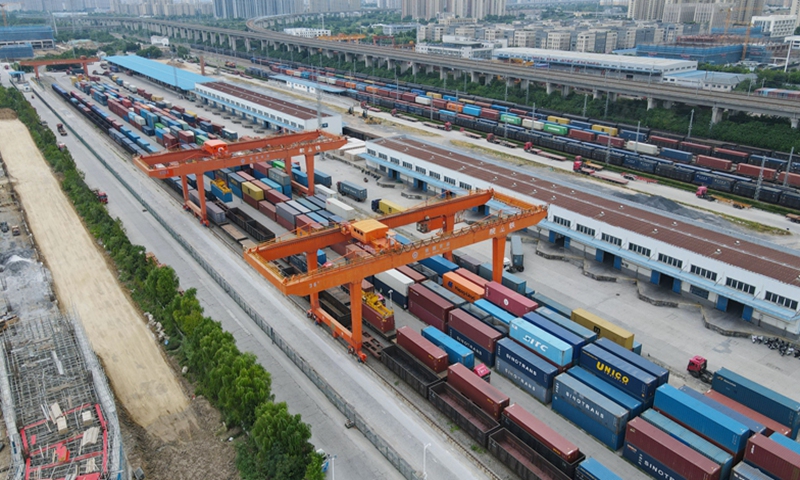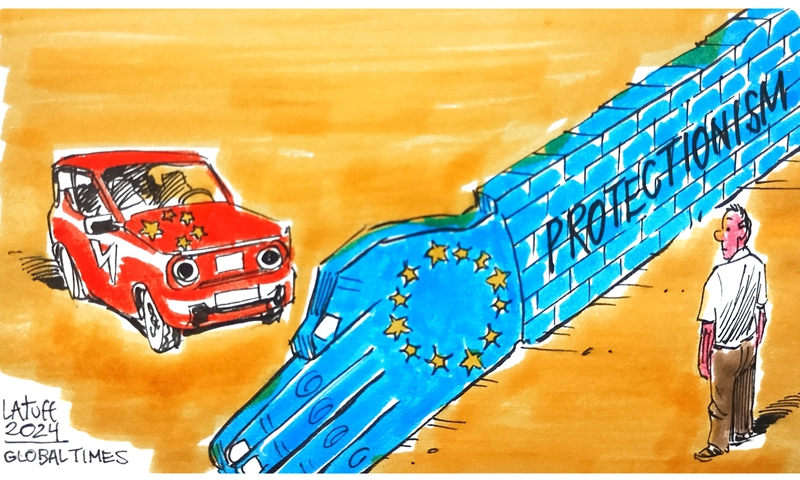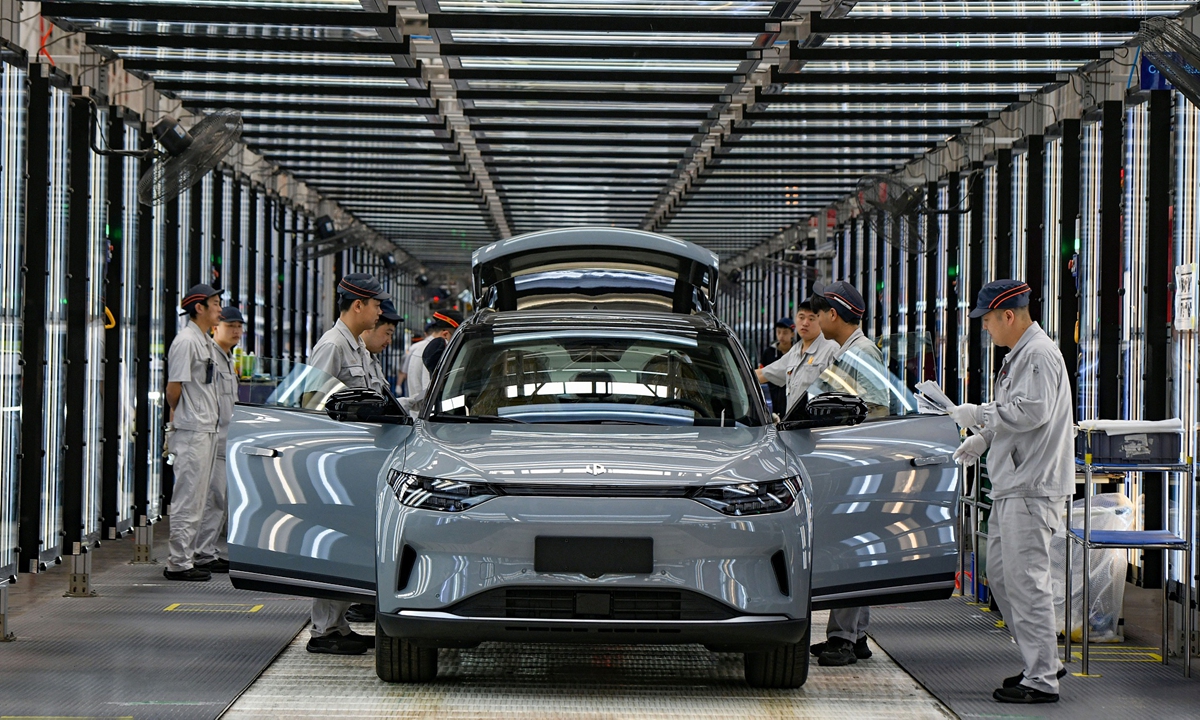EU’s new protectionist move set to ‘impede its green development’
Negative impact of protectionist actions to unnerve market: analyst

China-EU relationship Photo: VCG
The EU continues to take protectionist actions against Chinese products, with biodiesel becoming the latest Chinese product targeted by the bloc in a move that will further escalate tension between China and the EU amid the dispute over the EU's additional tariffs against Chinese electric vehicles (EVs).The EU's protectionist actions will not protect the bloc's businesses from normal market competition, but instead will undermine the competitiveness of EU industries and slow the bloc's transition toward green development, the experts noted.
In the latest example of the EU's growing protectionism against China, the bloc imposed provisional anti-dumping tariffs of between 12.8 percent and 36.4 percent on Chinese biodiesel starting on Friday, according to media reports.
China's exports of biodiesel to the EU have dropped sharply since mid-2023, with the volume in the first half of 2024 plunging 51 percent amid the EU's protectionist actions. The EU is one of the largest destinations for Chinese biodiesel exports, accounting for 90 percent of the total export volume in 2023, Reuters reported.
This is just the latest example of the EU's growing protectionism against Chinese products and companies. The EU has announced so-called anti-subsidy tariffs of up to 37.6 percent against Chinese EVs after what Chinese officials and experts said was a discriminatory investigation into Chinese EVs. The EU has also targeted Chinese companies' involvement in some projects in EU member countries.
Chinese officials have repeatedly criticized the EU's actions and Chinese industry groups have warned of grave consequences for bilateral economic and trade cooperation as well as the EU's plan to transition toward green development.
Zhao Junjie, a research fellow at the Chinese Academy of Social Sciences' Institute of European Studies, said that the EU's latest actions against Chinese biodiesel is just another example of the bloc's growing protectionism. "The best way forward is cooperation," Zhao told the Global Times on Sunday, "however, the current political environment in the EU has become inward. The EU's protectionist actions, including the so-called anti-dumping investigations, are very unwise."
Chinese officials have vowed to take all necessary measures to safeguard the legitimate rights and interests of Chinese companies.
As part of China's efforts to protect its rights and interests, the Ministry of Commerce earlier this month announced that it has initiated dispute settlement proceedings against the EU's provisional anti-subsidy measures against Chinese EVs at the WTO.
The EU's protectionist moves against Chinese products and companies have already caused damage to trade in relevant industries.
In the first half of 2024, Chinese EV exports to the EU plunged by 15 percent year-on-year to 221,000 units, according to Chinese official data. In June alone, EV exports fell below the level of 30,000 units, a decline of 31 percent year-on-year and the lowest in the year, the data showed.
Negative impact
Meanwhile, the EU's additional tariffs have caused significant uncertainty within the bloc. According to the latest data, the share of Chinese EVs among newly registered EVs in the EU reached 12.4 percent in June, compared with 10.4 percent a year earlier.
Commenting on the data, the China Chamber of Commerce to the EU (CCCEU) said that the change most likely reflects fluctuations created by the EU's plan to impose additional tariffs on Chinese EVs. "The data highlights the nervousness and uncertainty in European markets caused by the EU's protectionist measures," the CCCEU said in a statement shared with the Global Times.
The EU's protectionist actions against Chinese EV and biodiesel may led to declining exports to the EU in the short term, however, the moves will also have negative impacts on the EU's development, particularly its transition toward green development, experts said.
"The EU's protectionist actions may be only targeted at certain Chinese products, but it will hurt more industries," Zhang Jian, a vice president at the China Institutes of Contemporary International Relations, told the Global Times. "Chinese exports of biodiesel are in line with the EU's energy policies because the EU plans for its green transition are about cutting the consumption of fossil fuel. Biodiesel is conducive to the EU's green transition and its goals of cutting carbon emissions."
In addition to the additional tariffs against Chinese products, the EU has become increasingly hostile toward Chinese investments. Under its so-called Foreign Subsidies Regulation (FSR), Brussels has launched so-called investigations and even raids against Chinese companies, some of which led to Chinese companies to withdraw from projects in EU member countries.
Since the beginning of this year, the EU has launched five investigations under the FSR into Chinese companies. In one of the striking examples, in March, Chinese train maker CRRC withdrew from a 610 million euro ($660 million) public tender for a Bulgarian railway project, after the EU launched an investigation into the bid under the FSR framework.
The EU's moves have created great uncertainty for Chinese businesses operating in the EU and it will lead to a decline in Chinese investments, even as some EU member countries are seeking to attract Chinese investments, Chinese industry groups and experts have warned.
On Friday, the China Chamber of Commerce for Import and Export of Machinery and Electronic Products warned that EU members' backing of anti-subsidy measures targeting Chinese EV manufacturers will inevitably lead to a loss of investment in Europe.




